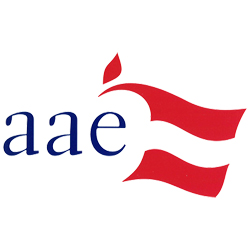 The Association of American Educators
The Association of American EducatorsThe Association of American Educators (AAE) is a non-union professional service organization for teachers. The AAE does not promote strikes or boycotts, does not engage in collective bargaining and does not engage in political activity unrelated to education. It does provide member benefits such as liability insurance, grants and resources such as job listings, lesson plans and other teaching materials.
 AAE doesn't have an official opinion on school vouchers, but it does survey members to see how they feel about education reform issues. Its most recent survey, released this week, reveals 59 percent of members support a Milwaukee-style voucher program for low-income students while 72 percent support Arizona’s Empowerment Scholarship Accounts (ESA) model. Regarding public school choice, 82 percent support open enrollment programs.
AAE doesn't have an official opinion on school vouchers, but it does survey members to see how they feel about education reform issues. Its most recent survey, released this week, reveals 59 percent of members support a Milwaukee-style voucher program for low-income students while 72 percent support Arizona’s Empowerment Scholarship Accounts (ESA) model. Regarding public school choice, 82 percent support open enrollment programs.
The survey only listed questions regarding school choice programs of limited scope and size, so it is possible members would be less supportive of more expansive voucher and scholarship programs. That said, the support among professional service organization teachers is roughly similar to that of the general public and several times more favorable than teachers in general.
Does the AAE attract teachers who are more likely to be open to school choice in the first place? Or does the AAE’s culture of professionalism encourage more open minds regarding school choice? These are matters worth exploring in the future.
 Southern Poverty Law Center
Southern Poverty Law Center The Southern Poverty Law Center (SPLC) is a steadfast supporter of racial, gender, income and educational equality, but it sometimes takes its beliefs to the extreme. A few months back, it filed a lawsuit literally arguing that since school choice can’t help all students, it shouldn’t help any. The center further explains its bizarre position with a new op-ed in the Montgomery Advertiser.
To summarize SPLC’s argument: rural students may have to drive a long way to exercise choice and if some parents don’t want to drive that far, or can’t drive that far, they have no real choice. If they don’t get a choice, then no one should get choice. SPLC defends this reasoning with a false dichotomy, writing,
“They are families forced to choose between using their only car to take their child to a remote school or to get the breadwinner to work on time. They are families that have little use for a scholarship to a distant school they have no way of reaching.”
What if a parent or guardian is willing to make the sacrifice to drive their child 20-30 miles to school? What if a private school or public school is willing to provide transportation assistance? What if, thanks to putting the money in the hands of parents rather than bureaucrats, a private option opens up right across the street from the rural public school?
SPLC doesn’t seem to give any consideration to the parents who want options, even if the options are 20, 30 or even more miles away. Is it fair to leave them without a choice because someone else is unwilling or unable to choose?
By the SPLC’s logic, we should also eliminate food stamps, housing assistance, TANF, the Affordable Care Act and Pell Grants because some needy family might be unable, unwilling or unaware enough to take advantage of them.

Winston-Salem, NC
The North Carolina School Boards Association is suing the state of North Carolina to stop a new voucher program for low-income kids, and it wants districts to join the lawsuit. But last week, the school board in Winston-Salem said no.
Although six of 11 board members oppose school vouchers, two members of the opposition said they did not want the district to join. In fact, only four board members even voted to add the lawsuit to the agenda. In other words, they couldn’t get enough votes on whether they should take a vote.
It is worth nothing that four of the 11 school board members openly support vouchers. For a fairly large urban school district, that is a large amount of support for school choice.